Xing'an Vocational and Technical College is located in Horqin Right Front Banner at the southern foot of the Greater Khingan Mountains. It was established in 2001 by integrating 7 colleges and universities in the region and approved by the People's Government of Inner Mongolia Autonomous Region. It is the only full-time college in Xing'an League, an old revolutionary base, and a national demonstration college for education reform and innovation, an autonomous region-level demonstration school, and a national high-skilled talent training base and a training base for rural revitalization in the region. School philosophy The college is guided by the "4321" school philosophy, insists on serving local development, school-enterprise cooperation, characteristic education, and open education. It takes serving the major strategies of the autonomous region, the pillar industries of Xing'an League, and the growth and development of college students as its own responsibility, and builds the college into a technical and skilled talent training base, an applied technology research and development innovation base, and strives to build an undergraduate-level vocational university. School scale The college covers an area of 1,515.2 acres, with a construction area of 211,700 square meters. The per capita value of teaching equipment is 18,100 yuan, and the per capita number of books is 129.5. The discipline and professional college focuses on the five major tasks of the autonomous region and closely follows the four major industries of Xing'an League. The majors cover 33 majors in 12 major categories, including agriculture, forestry and animal husbandry, energy and power, electronic information, medicine and health, tourism, resources and environment, education and sports. There are 2 backbone majors of the National Innovation and Development Action Plan; 6 key construction majors of autonomous region-level demonstration schools; 2 autonomous region-level high-level professional groups; 3 autonomous region-level characteristic majors; 26 "1+X" certificate pilot projects. The faculty team The college currently has 8,304 full-time higher vocational college students and 476 full-time teachers, including 57 senior professional titles, 179 deputy senior professional titles, 265 full-time teachers with master's degrees and above, and 245 "double-qualified" teachers. There are 6 autonomous region-level teaching masters, 6 new teachers in the teaching arena, and 8 ideological and political teaching masters; there is 1 autonomous region-level master studio; 6 autonomous region-level excellent teaching teams; won 1 first prize, 2 second prizes, and 1 third prize in the autonomous region-level teaching achievement award. The College of Teaching and Learning currently has 8 high-quality courses at the autonomous region level, 4 high-quality online open courses at the autonomous region level, 2 high-quality online open courses at the national level, and 2 national-level professional teaching resource libraries have been established. There is one national planning textbook for vocational education in the "14th Five-Year Plan", and one textbook for vocational education planning in the autonomous region in the "14th Five-Year Plan". There is one autonomous region-level ideological and political demonstration project. In the past three years, teachers have won 1 second prize and 1 third prize at the national level, 11 first prizes, 8 second prizes, and 9 third prizes at the autonomous region level in teaching competitions for higher vocational colleges; students have won 11 national awards and 60 district-level awards in various skill competitions. Scientific research adheres to the path of scientific and technological innovation that combines production, learning, research and application, and strives to create 13 scientific and technological innovation teams with clear main directions such as "rural revitalization" and "smart ecological agriculture". Actively carry out scientific research cooperation and project cultivation with Jiangnan University, Academician Yuan Longping's workstation, Shuifa Group, etc., and effectively promote the transformation and application of scientific and technological achievements. Successfully joined the national first-level society-China Enterprise Management Research Association, and established the "National Culture Development Research Center", a key research base for humanities and social sciences in colleges and universities in the autonomous region. In the past three years, 123 scientific research projects at or above the district level have been approved, and 43 projects have been completed. Social services actively play an intellectual leading role. Relying on four key majors such as preschool education and nursing, we actively build rural elderly care and childcare professional groups, and have been approved as a talent training base for elderly care in the autonomous region. Focusing on the characteristic industries of "two meters, two cows and one tourism" in Xing'an League, we organize technical skills training to truly build skills training on the industrial chain. Relying on the national high-skilled talent training base established by the college, the training base for rural revitalization leaders in the whole region and the "Rural Revitalization College" of Xing'an League, we undertake the training tasks of more than 20,000 farmers and herdsmen at all levels and types each year. We vigorously promote the "double certificate" system, and train more than 4,000 people in professional skills appraisal every year. International exchanges actively respond to the "Belt and Road" development initiative, give full play to the role of "bridgehead" in opening up to the north, rely on the China-Mongolia-Russia Northeast Asia Tourism and Business Cooperation College, hold the fifth China-Mongolia-Russia Vocational College Service "Belt and Road" Characteristic Animal Husbandry Forum, and carry out more than 10 cultural exchange activities, effectively helping the "five major tasks" to be implemented and effective. School-enterprise cooperation and integration of industry and education actively build an innovative platform for school-enterprise collaborative education, promote the in-depth development of integration of industry and education, explore and form a talent training model of "government, school, industry, and enterprise" multi-party linkage, and successively carry out diversified cooperation with more than 120 enterprises, 20 colleges and units such as Huawei Technologies Co., Ltd., Lenovo Group, Inner Mongolia Forest Industry Group, and Shandong Lu'an Group. Focusing on the five major tasks assigned to Inner Mongolia by General Secretary Xi Jinping, it co-founded the first modern fire industry college in the autonomous region with Shandong Lu'an Fire and Security Co., Ltd., and was approved as the first batch of "craftsman colleges" in the autonomous region. Together with 15 enterprises and institutions such as Inner Mongolia Agricultural University and Inner Mongolia Forest Industry Group, it took the lead in establishing the "Inner Mongolia Modern Fire Industry-Education Integration Community". At the same time, it was approved as the first batch of municipal industry-education consortiums in the autonomous region, the green animal husbandry production industry-education integration practice center, and the wind-solar complementary industry-education integration practice center, etc., gradually forming a development pattern of coordinated integration and benign interaction between education and industry.
-

Tsinghua University
-

Peking University
-

Fudan University
-

Wuhan University
-

Zhejiang University
-

Nanjing University
-

Sun Yat-sen University
-

Tongji University
-

Renmin University of China
-

Jahrom University of Medical Sciences
-

Technological Institute of Tlaxcala Plateau
-

Golfo University
-

Technological University of South Sonora
-

Technological University of Huejotzingo
-

Tizimín Institute of Technology
-

Chilpancingo Institute of Technology
-

Technological Institute of Boca del Rio
-
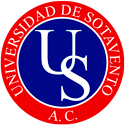
University of Sotavento
-
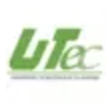
Technological University of Tulancingo
-

Valle del Grijalva University
-

Technological University of Nezahualcoyotl
-
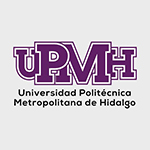
Metropolitan Polytechnic University of Hidalgo
-
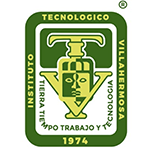
Villahermosa Institute of Technology
-
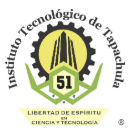
Instituto Tecnologico de Tapachula
-

Technological Institute of Parral

